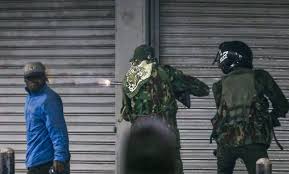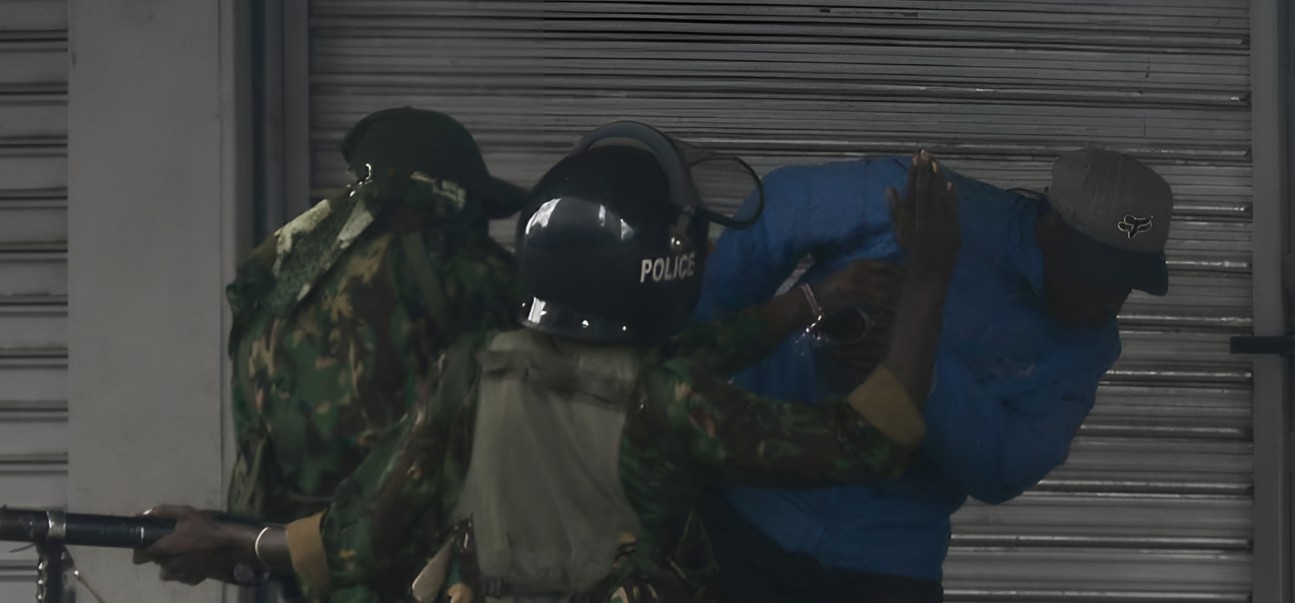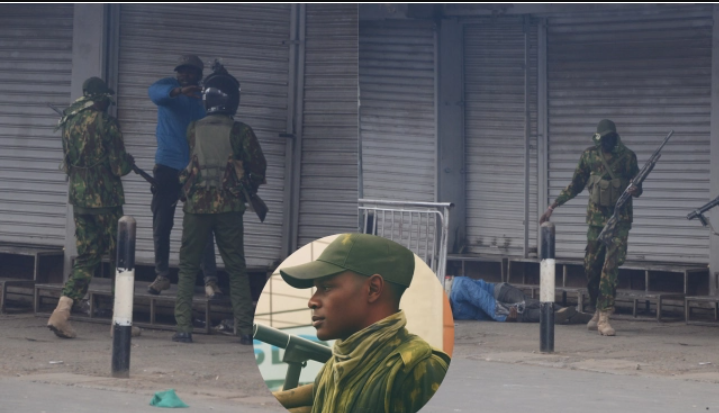Boniface Mwangi Kariuki, the mask vendor who was shot in the head during the June 17 protests, has died. Kariuki passed away at 3:15 PM on Monday, June 30, at Kenyatta National Hospital, nearly two weeks after the shooting incident that sparked national outrage. He had been in the Intensive Care Unit (ICU) since the shooting.
His family, speaking to the press while announcing his death, revealed that the hospital bill had escalated to over KSh 3.5 million, and no government institution had offered assistance. They are now appealing to Kenyans for financial help.
“All I can say is that we have a tough task ahead, as getting him out of there [the mortuary] is hard because we do not have money. We are seeking help from Kenyans,” stated Jonah Kariuki, Boniface’s father, who also emphasized his demand for justice. “I want justice for my son because my son did not do anything wrong. I knew that in the future, he was my only hope. He was my only son, as the rest are daughters.”
This tragic development comes just a day after the family confirmed that Boniface had been declared brain dead on Sunday, June 29, around midnight. At that time, a family spokesperson had stated that with his brainstem no longer functioning, they were simply awaiting doctors to declare him clinically dead. Legal frameworks in Kenya prevented the family from switching off life support until his heart ceased beating.

The Shooting and Aftermath
During the June 17 protests, Boniface Mwangi Kariuki, an unarmed mask vendor, was captured on camera being assaulted by two police officers. One officer then shot him at point-blank range in the head. He was left bleeding on the ground before fellow protesters rushed him to the hospital. An emergency surgery at Kenyatta National Hospital hours later successfully retrieved a bullet from his skull.
The shooting ignited a significant public outcry from human rights defenders and the public, not only due to his unarmed status but also because the protest itself was a call against police brutality.
Police Response and Investigations
Hours before Kariuki succumbed to his injuries, former police spokesperson Charles Owino offered a controversial perspective during a Monday morning interview. He claimed that Kariuki had insulted the police officers. “It was a very simple exchange. If you listen to that clip closely, you will hear the boy abusing the policeman. But as an officer, you must have restraint—and shoot him with a rubber bullet, not a live one. You can see what this has done to the image of the police so far,” Owino stated.
Regarding Klinzy Baraza Masinde, the police officer who allegedly pulled the trigger, Owino suggested he was a young recruit with less than two years of service who took the insults personally, leading to a “rash reaction.”
The two police officers involved in the shooting were arrested shortly after the incident. On June 19, they were arraigned at the Milimani Law Courts, where the judge granted a request from both the prosecution and the defense to hold them for 15 days, allowing for further investigations by the Independent Policing Oversight Authority (IPOA).


